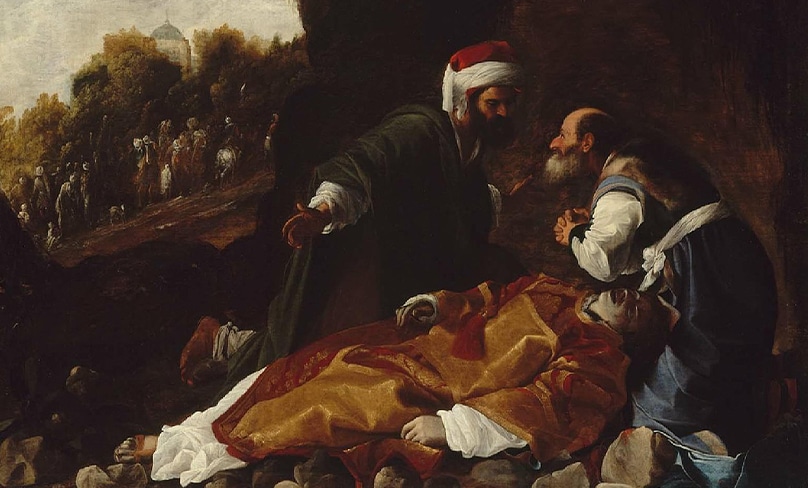
Dear Father, I have always admired the intervention of the Jewish rabbi Gamaliel in defence of the apostles in chapter 5 of the Acts. How much do we know about him? And was he important?
As with many figures in the Bible, we know quite a bit about Gamaliel. Known as Gamaliel the Elder, or Rabban Gamaliel I, he was a leading authority in the Sanhedrin, the Jewish Council, at the time of Christ.
He came from an illustrious Jewish family, being the son of Simeon ben Hillel and grandson of the great Jewish teacher Hillel the Elder. In the Acts, Luke describes him as a Pharisee, “a teacher of the law, held in honour by all the people” (Acts 5:34).
In the Mishnah, the first major written collection of Jewish oral traditions, Gamaliel is regarded as one of the greatest teachers in all of Judaism: “Since Rabban Gamaliel the Elder died, there has been no more reverence for the law, and purity and piety died out at the same time” (Sotah 9:15).
The Mishnah also relates that even the king and queen asked Gamaliel for advice about rituals. It is thought that these were either Herod Agrippa and his wife Cypros, or Herod Agrippa II and his sister Berenice.
St Paul prides himself on having been taught by Gamaliel: “I am a Jew, born at Tarsus in Cilicia, but brought up in this city at the feet of Gamaliel, educated according to the strict manner of the law of our fathers…” (Acts 22:3).
There is a tradition that Gamaliel became a Christian. Patriarch Photios I of Constantinople says that he was baptised along with his son Abibon and Nicodemus by the apostles Peter and John, and the Eastern Orthodox Church venerates him as a saint.
In the Western tradition there is a painting by a follower of Carlo Saraceni, done around 1615, titled “St Stephen mourned by Saints Gamaliel and Nicodemus.”
Gamaliel’s advice that the Sanhedrin should not interfere with the apostles has great relevance to the subsequent history of the Catholic Church.
We recall that when the members of the Sanhedrin wanted to kill the apostles, Gamaliel reminded them of Theudas, who had some four hundred followers, but he was killed and his followers were dispersed; and of Judas the Galilean, who also had some followers, but he too died and his followers were scattered.
Referring to the apostles, he concluded that, “if this plan or this undertaking is of men it will fail; but if it is of God, you will not be able to overthrow them.”
Such was Gamaliel’s prestige and wisdom that the Sanhedrin agreed with his proposal and, after beating the apostles and warning them not to speak again in the name of Jesus, they let them go (cf. Acts 5:33-40).
Gamaliel’s logic was borne out from a human point of view Jesus was just an uneducated son of a carpenter from the small town of Nazareth in Galilee. He had only twelve close associates, who were the apostles, and seventy-two disciples.
And he too came to an unfortunate end, nailed to a cross outside Jerusalem. If he were only a man, that would certainly have been the end of the Church. His followers would have dispersed and gone back to their fishing and tax collecting.
Indeed, two of his close disciples became discouraged and left Jerusalem on the very afternoon of his resurrection to make their way, dejected, to Emmaus (cf. Lk 24:13-35).
But Jesus was not only a man. He was God, the Son of God, who took flesh in the womb of his mother, and three days after his death on a cross he rose from the dead and appeared numerous times to his disciples.
Before he left for heaven, he charged his disciples to go out to all nations to teach and baptise. Ten days later he sent the Holy Spirit upon them and, filled with the Spirit, they went out to all nations, to places as distant as India, Egypt and Spain.
The survival and prodigious growth of the church, following the logic of Gamaliel, took place because Jesus was not merely man but also truly God.
Right from the beginning and over the centuries, the church was persecuted bitterly and yet it continued to grow and to spread all over the world.
Today it is the largest single religious organisation in the world. And it continues to grow.
Gamaliel was right. If the church were merely a human institution it would have disappeared a long time ago. But it was divine, and it has survived and thrived to this day.
